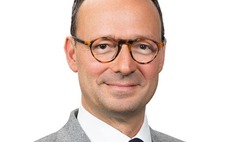
Q&A: EQT Partners' Martin Mok
Martin Mok, a Hong Kong-based partner at EQT Partners Asia, talks to AVCJ about what slowing economic growth and slowing public markets mean for private equity investors in China
Q: EQT Greater China II is a 2005 vintage fund. Are you now looking for exits?
A: The fund made nine investments to date; one of those, LBX Pharmacies, filed in February with the Shanghai Stock Exchange. The IPO market has been slowing down but we are hopeful of approval by next year. We have had tripled EBITDA during the four-year ownership period are just waiting for the environment to improve for a liquidity event.
Q: What have you done to boost the company's earnings?
A: When EQT first went into the deal, LBX's gross margin was in the 22% range - for a retailer that's not really good enough and the reason was not enough high margin products were being sold. The company changed its procurement structure so now over 40% of its products are now in the high-margin category, up from 20%. Gross margins have since risen from 22% to 35%. The other major innovation involved store format. LBX went to visit market leaders in the UK, the Philippines and Japan. vAs a result, LBX has managed to branch out into a whole new customer demographic with a third-generation store format that attracts younger customers.
Q: When the IPO markets are struggling what can you do to develop other exit channels?
A: Fortunately, only two of EQT's portfolio companies are targeting IPOs and the market for trade sales is still quite strong. It is impossible to predict the market but if you look at the Shanghai Stock Exchange, China hasn't been this cheap for well over 10 years. There is moderately slow growth but when the market is trading at its lowest in decades you have to believe it is not going to get much worse. And I believe the whole thing is turning a corner.
Q: What can you do to insulate portfolio companies against slowing macro growth in China?
A: We invest in cyclically neutral companies, such as LBX Pharmacies and Qinyuan Bakery, which have seen EBITDA increase 25% and 50%, respectively, so far this year. Hong Kong's Japan Home Centre has also seen EBITDA jump by 12% despite Hong Kong's GDP being revised down to 1-2%. The key is we were a little bit gun-shy during the 2006-2007 global liquidity boom when everyone else was investing in mining and real-estate. Some did well and got out quick but others didn't.
Q: What impact is slow growth in China having on the investment environment?
A: Anyone heavily exposed to the commodities market, real estate or the banking sector is suffering. I spoke to some of the top Chinese private equity firms recently and asked, if they were add together all the profits from their portfolio companies so far this year, would it be growing or shrinking. At least two said it would be shrinking. Earnings for companies in the Shenzhen Composite Index are down 11% and industrial profits in China are falling across the board. What does that mean for private equity? Fortunately for us, EBITDA across all our companies in third quarter is up 32% year-on-year.
Q: What impact is this changing environment having on how GPs' investment strategies?
A: It is having a deep impact. People are realizing that it's not about investing in anything that seems to be growing or heading for an IPO. Instead they have to be careful in selecting businesses with good cash flow, stability and neutrality to the cycle. Companies involved in pharmaceutical retail, baked goods and household products - like LBX, Qinyuan and Japan Home Centre - can be improved by better management and industrial benchmarking. These are all the hallmarks of traditional private equity when it started in the US and Europe, something China has moved away from in recent years with the boom in pre-IPO investments. However, the country will likely return to these fundamentals.
Q: A number of PE firms are taking advantage of weak public market valuations by doing take-private deals - and in June EQT did this with Singapore-listed China Healthcare. What are your plans for the company?
A: China Healthcare has done very well to date. This is because of operating leverage and the nursing homes increasing utilization rates to 95% while simultaneously increasing prices. The company has also ramped up home care and training services, so all the business engines are humming. EQT brought in co-investors and together we have a 49% stake while the founder holds the rest. The business plan is based upon improving existing nursing home services and building more centers. According to the Singapore government, by 2030 one fifth of the city's population will be 65 or over and, given the depth of local wealth, people will be able to afford nursing homes. The aim is to build more centers as the government gives out more licenses and they have just announced 10 more will be issued. China Healthcare also has a center in Malaysia and a second opening by 2013. The company will continue to grow in Malaysia, which has similar dynamics to Singapore in the form of an ageing, affluent population.
Latest News
Asian GPs slow implementation of ESG policies - survey
Asia-based private equity firms are assigning more dedicated resources to environment, social, and governance (ESG) programmes, but policy changes have slowed in the past 12 months, in part due to concerns raised internally and by LPs, according to a...
Singapore fintech start-up LXA gets $10m seed round
New Enterprise Associates (NEA) has led a USD 10m seed round for Singapore’s LXA, a financial technology start-up launched by a former Asia senior executive at The Blackstone Group.
India's InCred announces $60m round, claims unicorn status
Indian non-bank lender InCred Financial Services said it has received INR 5bn (USD 60m) at a valuation of at least USD 1bn from unnamed investors including “a global private equity fund.”
Insight leads $50m round for Australia's Roller
Insight Partners has led a USD 50m round for Australia’s Roller, a venue management software provider specializing in family fun parks.







